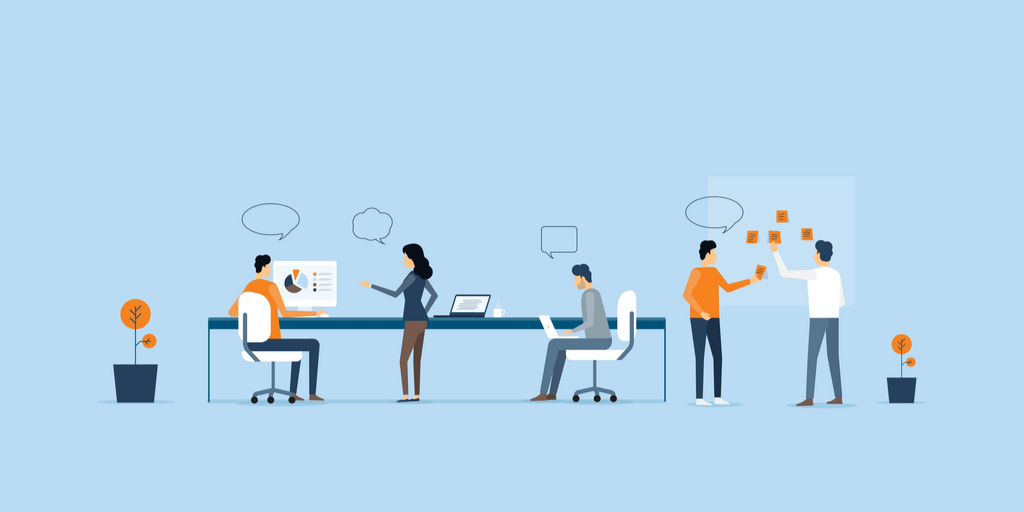Codemania 2019: What we learned from global tech leaders
Posted May 28, 2019 | 5 min. (856 words)For eight years, Codemania has brought developers and technology enthusiasts together in Auckland. This year, 500 developers arrived to network, share ideas, and solve problems with an impressive speaker lineup that included developers, authors, and global tech leaders.
As the day unfolded, we learned how Apple appears to achieve the impossible with their short product development lifecycles. We dug into empowering teams with better software leadership, and why distributed programming languages are here to stay.
If you missed it this year, or if you attended and would like to get a lo-down for next year, here are the highlights.
Applying cultural intelligence to data
“Tech has a big role to play in preserving the sovereignty of languages. The key to machine learning is big data. But how do we license that data (AKA knowledge)? We want to make language ubiquitous, but one thing is for sure, selling te reo Māori won’t happen.”
While we don’t usually pick favorites, one talk, in particular, held the room rapt. In the talk “Indigenous digital platforms,” Keoni Mahelona from Te Hiku Media tells the story of how to apply cultural intelligence to the ways we manage and look after data and tech.
Our favorite takeaways from Codemania
The central focus of Codemania was learning and leadership. While there were too many great quotes to count on these topics, here’s a selection from the day.
On leadership and people
“Harness your ‘blue flame’ — the sweet spot between your intrinsic motivations (your passions), and your extrinsic motivations (how can they be used to drive business outcomes?)” — Nick Caldwell, Chief Product Officer at Looker.
“Culture eats strategy for breakfast. As you learn to lead a team, you learn that you are not just managing individual contributors. You are dealing with a complex sociotechnical system. Yet unlike distributed systems made up of software, people do not throw stack traces, write detailed log output, or give helpful error messages.” — Andrew Harvey, CTO in Residence of Microsoft in Sydney, speaking to “You team as a distributed system.”
“We’ve become Best Friends Forever with the Backends For Frontends approach to API design. We’ve been using BFFs to break up APIs based on the client experience that consumes them in order to move fast and not break things.” — Alix Klingenberg, Software Developer at Auror, “Backends for frontends.”
On development, data, and tech
“Research in the area of distributed programming languages isn’t dusty, haughty, and sterile. It’s dynamic and exciting!” — Heather Miller, Assistant Professor at Carnegie Mellon University, asking, “What happened to distributed programming languages?”
“In the “real world,” most folks spend the majority of their machine learning time doing data cleaning and feature prep (yes yes I know “deep learning” is going to save us, but not if our inputs are garbage).” — Holden Karau, DA at Google Cloud, talking on “Building end-to-end machine learning pipelines” with KubeFlow and Apache Spark.
“Are we thinking about how biases in the training data sets (and the human biases that are part of the development of the algorithms) are affecting the results?”— Michelle Burke, Data Architect at the Reserve Bank NZ, in her talk, “The road to Hell is paved with good intentions: when good data scientists do bad data science
“Nothing is magic. The best kind of genius writes code that is accessible and which does not require you to think about too much.” Just one of our favorite takeaways from Evan Shaw, Lead Engineer at Vend, from his talk “Open source rules.”
“It’s common to wish you could just throw away a codebase that’s over a few months old (or if it’s JavaScript, a couple of days), but sometimes it really does make the most sense to start over.” — Rob Fonseca-Ensor, Director of Engineering at Auror, “ASTEROID TIME! When code evolution isn’t enough”.
On product management
Taking us back to our creative roots, Raquel Velez, Engineering Manager at Slack, took a different angle to prototypes and bug fixing in her brilliant, and hilarious talk titled “The Engineering of Craft.” The key takeaway? Understand your customers and their needs, get in front of real customers when testing, and iterate quickly by making small changes.
“Uncertainty is profoundly uncomfortable. That’s why people say ‘no.’ But ‘no’ makes things go away. ‘Maybe later’ or ‘yes’ represents a risk. By saying no, what you are actually saying is ‘I don’t want to work on that because there are lots of dependencies, or it isn’t a fully formed idea.’” — Meriko borogove, creator of the iPhone camera, formerly Apple, in her talk “Through my lens: How uncertainty can make stronger products and leaders.”
What to look for next year
If one day wasn’t enough for you, Codemania Conversations continue for two days after the event. This exclusive ‘unconference’ offers the unique opportunity to spend quality time with speakers.
Described as an intimate conference with no plans to grow larger, Codemania promises to provide value for the NZ developer community for years to come.
Considering the conference sold out so quickly, here’s a pro tip for next year: Get in quick!
Looking forward to seeing you there next year!


